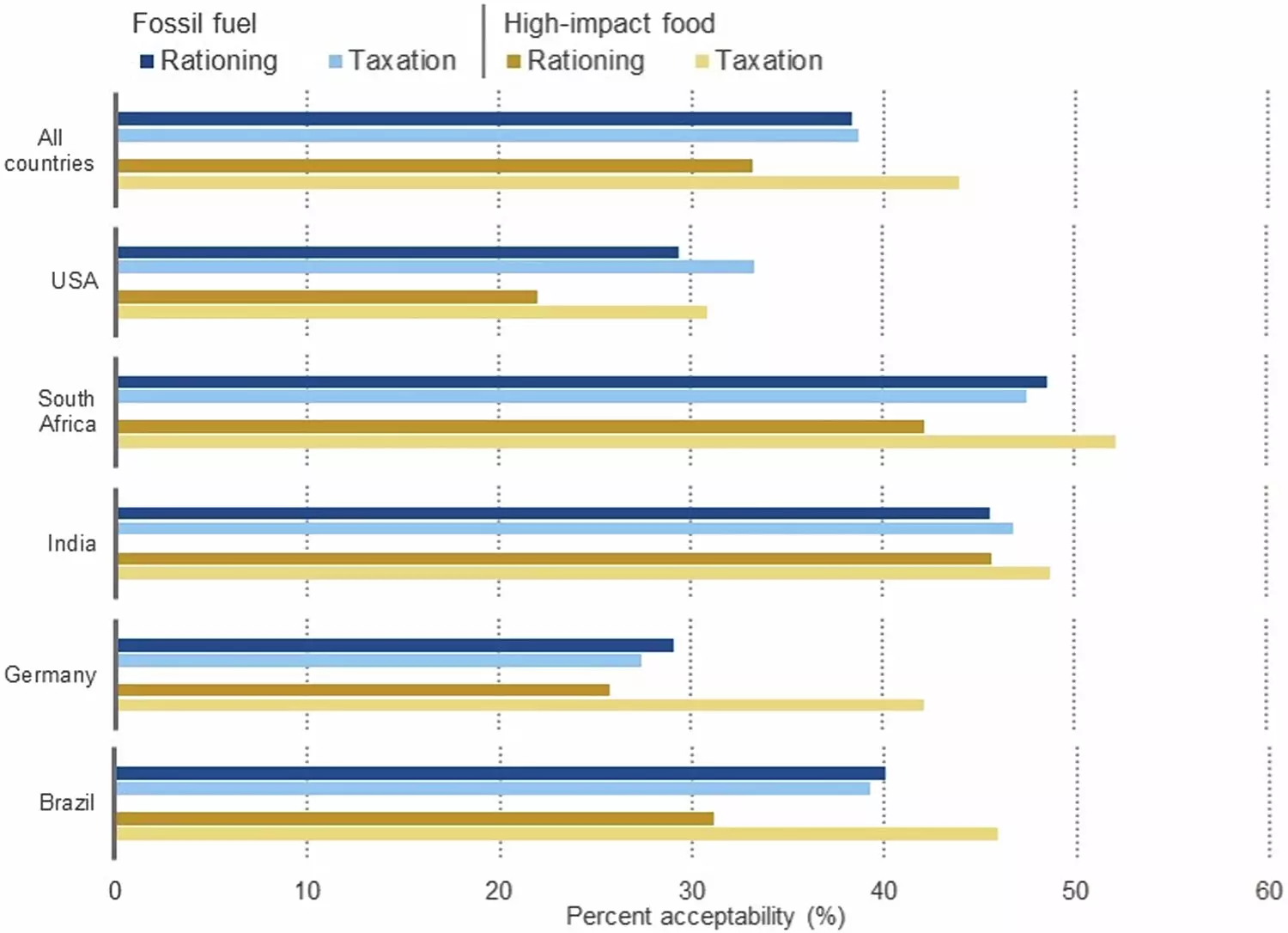Amidst the escalating conversation about climate change, researchers are examining innovative policy measures to curtail consumption that significantly impacts the environment. One of the most noteworthy proposals gaining attention is the rationing of goods, such as high-emission fuels and meat products. A recent study from Uppsala University’s Climate Change Leadership Group reveals a surprising trend: a considerable segment of the population appears not only open to these measures but sees them as a potentially equitable approach to combatting climate change.
Conducted with nearly 9,000 participants across diverse countries including Brazil, India, Germany, South Africa, and the United States, the research juxtaposed public reception towards rationing versus traditional economic instruments like carbon taxes. It was found that approximately 40% of respondents could accept the notion of rationing—matching the acceptance levels for taxation on similar goods. Oskar Lindgren, the doctoral lead on the study, emphasizes that equity may be a fundamental reason for this openness. Unlike income-dependent taxes, rationing can offer an equal approach to consumption limits, potentially allaying fairness concerns among citizens.
While public sentiment on such drastic measures might seem drastic, the reality of ongoing climate change challenges this perception. In Germany, notably an industrial stalwart, resistance against fuel taxes was unexpectedly higher than opposition to rationing, suggesting that tactics people might normally associate with government overreach could, in fact, be embraced under the urgency of climate-related necessities.
Fairness and Public Acceptance: Key Correlations
The correlation between perceived fairness and acceptance of environmental policies cannot be overstated. Lindgren articulates that measures viewed through a lens of equity are likely to gather wider support. This finding is critical, particularly as policymakers navigate a landscape rife with skepticism towards administrative directives. Those who advocate for bold solutions might find solace in this research, as it opens avenues for discussions around the public’s willingness to accept substantial lifestyle changes, especially when framed as communal actions against a global threat.
The disparities in acceptance levels among different countries also present a compelling narrative. Participants in countries like India and South Africa demonstrated a higher readiness to embrace rationing measures compared to their counterparts in the West. The varied responses raise important questions about cultural attitudes towards sustainability and governmental intervention in daily living.
Engagement with climate action is not uniform among all demographic groups. The study identified young, educated individuals and those alarmed by climate change as the most supportive of rationing policies. This trend suggests that education and awareness play crucial roles in shaping attitudes toward climate initiatives. In an age saturated with information, empowering these demographics with knowledge could drive societal shifts in behavior toward consumption and environmental responsibility.
Conversely, the resistance displayed by specific demographics in regions like the U.S. and Germany toward rationing—specifically concerning meat—is intriguing. These insights suggest that while acknowledging climate change, groups may still cling to strong cultural ties with food and consumption practices. Any deliberate policy design would need to take these sensitivities into account to enhance acceptance levels.
The intersection of democratic ideals and climate change necessitates innovative policy frameworks that address both the urgency of action and the importance of public buy-in. As Lindgren articulated, while previous climate studies primarily focused on economic measures like carbon taxes, it is essential to broaden the discourse by exploring the viability of rationing and its public acceptance. The positive responses toward the prospect of rationing underscore a shift in mindset and readiness for the sometimes uncomfortable implications of climate action.
While rationing may seem an untraditional response to climate urgency, this study from Uppsala University highlights an awakening among varied demographics toward essential change. As societal norms evolve, and as the devastating impacts of climate change become increasingly visible, policies that harmonize equity with sustainability—such as rationing—could pave the way for a more sustainable future. As the conversation continues, further research will be vital to refine these strategies and uncover how best to engage the public in meaningful climate action.

